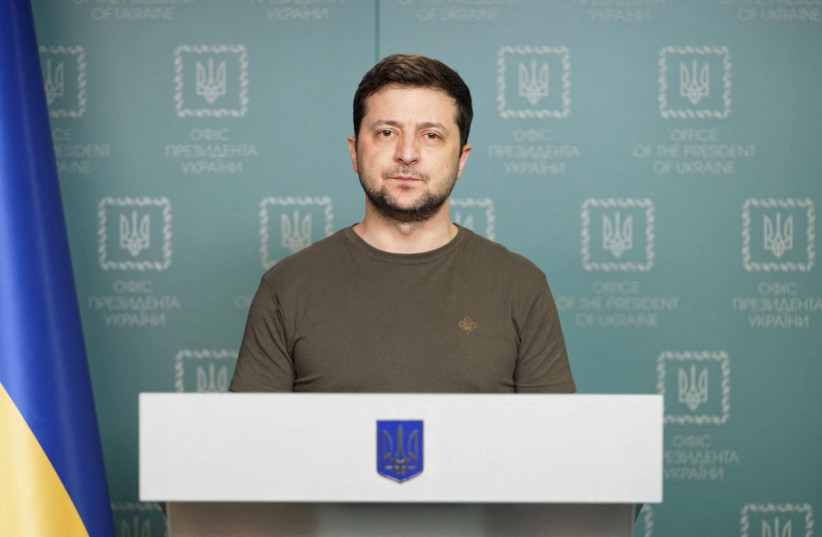Winning the war in deepening democracy is Ukraine’s choice. Its approach is to accelerate the decentralization of power and develop local-to-local cooperation partnerships with local actors in Europe. Among the immense challenges regarding civilian populations, children are the priority. This vision was clearly endorsed by all levels of Ukrainian authorities during the recent summit of cities and regions in Kyiv.
Faced with a brutal military aggression, some countries would have chosen the path of entrenching the regime. Not Ukraine. The full-scale war unleashed by Russia in February 2022 has not caused the country to deviate from the democratic trajectory to which it has resolutely committed itself since 2014. On the contrary, despite the war, efforts have intensified to make governance more transparent and effective to fight corruption and to strengthen the rule of law.
Decentralizing power in Ukraine
At the heart of these democratic efforts is the process of decentralization of power. In Ukraine, the participation of the population in the development and implementation of public policies is not wishful thinking, it is a daily reality and a project for the future. The current deepening of decentralization – in the midst of the war – gives more power to citizens, strengthens local ownership of policies and consolidates social cohesion.
This decentralization movement is fundamental because it allows Ukraine to overcome the greatest challenge a nation can face: brutal military aggression by a cruel, powerful, authoritarian regime determined to destroy its national existence.
While democracy is weakening everywhere, Ukraine thus offers a way forward to renew it and generate support from the people again, as it showed in 2014 with the EuroMaidan civic protest movement. The value of the European project was that it drew wide support despite that such support was waning everywhere across the continent.

The political costs that are at stake as viewed during the war appear with clarity. Two models are in direct confrontation with each other. On one side, sits the democratic, decentralized Ukrainian model, with increasing participation of the population in the exercise of power. While on the other side, sits the centralized, authoritarian, increasingly oppressive Russian model, supported by its authoritarian, theocratic and dictatorial allies. On one side, a project of liberation and projection toward the future; on the other side, a gruesome attempt to go backward and constitute a “USSR 2.0.”
In order to have liberty and democracy succeed and to make the decentralization process more efficient, cooperative partnerships between local actors from Ukraine and Europe are fundamental.
Ukraine has a lot to learn
THIS IS a public call to regions, cities, agglomerations, civil society organizations: we reach out to you to establish institutional and operational partnerships with your Ukrainian counterparts. This is how we will continue to learn from each other, to improve, to deeply anchor Ukraine on the continent and to mutually invent a shared European identity.
Ukraine has a lot to learn from the expertise of its European friends to rebuild itself better. It has many innovations developed during the war in several fields to share.
Among all the challenges concerning the civilian population, children are the priority. They suffer terribly,and they are the future of the country. Traveling to Europe, meeting youth from other cultures, gaining experience and acquiring skills will allow the younger generations to continue the work of liberation and democratization that is underway to carry forward for decades to come.
The abduction of over 16,200 Ukrainian children by Russia is a war crime according to the International Criminal Court, and constitutes a crime of genocide according to the Convention on the Prevention and Punishment of the Crime of Genocide adopted by the UN in 1948. There is no greater urgency than their immediate release.
Support for the millions of Ukrainian children who are suffering because of the war must be at the heart of the local-to-local cooperation partnerships between actors of Ukraine and Europe. These children need a prykhystok, a shelter, a refuge, to “breathe” away from the horrors of the war. Such relief will allow them be children again, help them overcome the immeasurable trauma they suffer and continue to live in spite of this, with this.
In particular, we have three specific requests for actors in Europe: welcome these children for respite stays for a few weeks; organize “transplanted classes” for a month: children who have started their fourth consecutive school year in distance learning come to Europe with their teachers to learn the Ukrainian curriculum in person and thus repair some of the damage in mental health, educational level and socialization; finally, support the development of children and youth empowerment centers in Ukraine, especially in the areas that are the most affected by the war.
Offering youth a prykhystok in Europe also relieves the women who are often responsible for them. The local communities overall are therefore supported.
The establishment of cooperation partnerships between local actors from Ukraine and Europe, with activities for children at their heart, will support the movement of decentralization and the deepening of democracy in Ukraine. It is the victory of liberty and democracy against authoritarianism and oppression that is at stake. Long live democracy, long live Europe, Slava Ukraini!
The governors of 24 regions and the mayors of 117 cities and towns in Ukraine signed this article, along with national leaders. Here is a link to the full list of signatories:
https://www.europe-prykhystok.org/post/list-of-signatories-of-the-opinion-paper.
Benjamin Abtan is cofounder and director of Europe Prykhystok. Oleksandra Matviichuk is head of the nonprofit Centre for Civil Liberties, a recipient of the Nobel Peace Prize, and a campaigner for democratic reforms in Ukraine.
